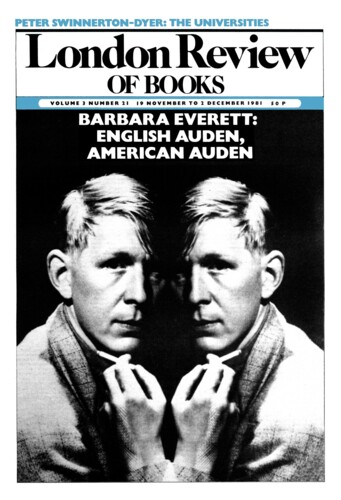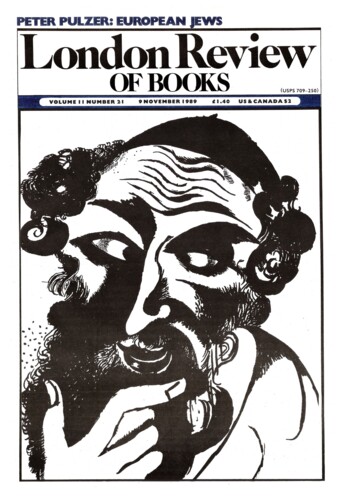Ancient and Modern
M.A. Screech, 19 November 1981
Does Luther explain Hitler? Oberman, an international Dutchman at home in Tuebingen, asks the question only to toss it aside: the Reformation was not a ‘German tragedy’. Into this English version of Werden und Wertung der Reformation he interpolates an abrupt sentence: ‘The appalling experiences of the Third Reich incline historians to assume that what went wrong with the Reformation was Luther’s sell-out to the princes’ – which supposedly led to a German tendency to give the last word in politics or morals, not to the individual or the Church, but to the collective and the State. Oberman rejects all this as too easy a way out of a complex problem. It may well salve ‘forever the German religious conscience’, but it does violence to truth. Generalisations must wait till we know a lot more. Confessional distortions are out of fashion; some political and social ones less so. Oberman’s book is a massive contribution to a debate. He cannot see the Reformation solely in terms of social or political forces. He believes in a variety of Geistesgeschichte. His thesis is a controversial one, and is presented as such in the blurb.




